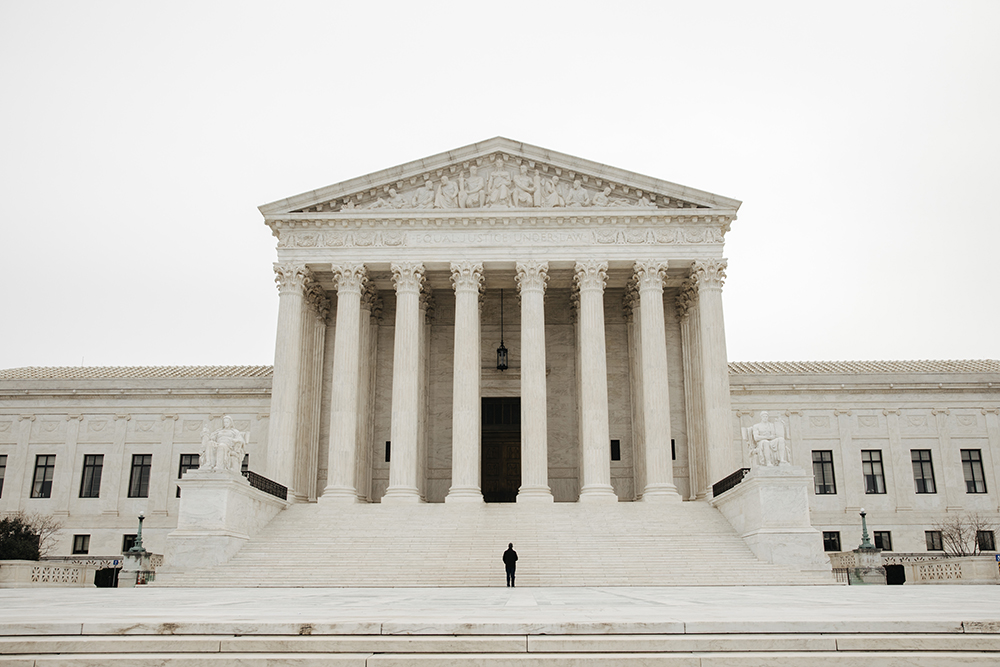Washington: The US Supreme Court was poised Friday to wade into the legal battle over the abortion drug mifepristone with a ruling on lower court-ordered restrictions on the widely used pill.
The nation's highest court has until midnight Friday (0400 GMT Saturday) to decide how it will handle the most significant abortion case since it tossed out the constitutional right to the procedure last year.
The conservative-dominated bench had been scheduled to issue a ruling by Wednesday but it extended a stay freezing the lower court decisions for two days as it decides what to do next.
"If the Supreme Court rules in a way that restricts mifepristone it would have enormous consequences for women across the country," said Pramila Jayapal, a Democratic member of the House of Representatives from Washington state.
"I'm really hoping that the Supreme Court doesn't go there," Jayapal told CNN.
The court can rule in any number of ways, and abortion rights and anti-abortion activists -- as well as millions of Americans -- are on tenterhooks waiting to see how it proceeds.
The case stems from a ruling by a US District Court judge in Texas that would have banned mifepristone, which was approved by the Food and Drug Administration (FDA) in 2000 and accounts for more than half of all abortions in the United States.
An appeals court blocked a ban on the pill, but imposed tough restrictions on access, after which the baton was handed to the Supreme Court, where conservatives wield a 6-3 majority.
The Supreme Court could further freeze the lower court rulings pending an appeal from the Justice Department and mifepristone manufacturer Danco Laboratories.
It could also allow the rulings restricting access to the abortion pill to take effect while the appeals play out.
The court could also decide to hear arguments in the case itself on an expedited basis.
Complicating the case further is a ruling by a separate federal court in Washington state that said access to mifepristone should be maintained.
Since the Supreme Court overturned the landmark Roe v. Wade ruling that enshrined the constitutional right to abortion for half a century, 13 states have banned abortion and it has been severely restricted in others.
- 'Deeply misguided' -
Opposition to the legal assault on the abortion pill is being spearheaded by the Justice Department, which argued that the initial federal judge's ruling was based on a "deeply misguided assessment" of the pill's safety.
Mifepristone is one component of a two-drug regimen that can be used through the first 10 weeks of pregnancy.
It has a long safety record, and the FDA estimates 5.6 million Americans have used it to terminate pregnancies since it was approved.
The appellate court, while striking down the ban on mifepristone, restricted its use to seven weeks of pregnancy, down from 10, and prohibited distribution by mail.
In a filing to the court on Tuesday, the anti-abortion coalition that first brought the case against the FDA repeated their controversial claims that the drug was unsafe.
The coalition said the FDA and distributor of mifepristone had "brazenly flouted the law and applicable regulations ... and continually placed politics above women's health."
In Canada, meanwhile, Families Minister Karina Gould said that the federal government is prepared to provide access to the abortion pill to American women if it is restricted in the United States.
Gould told CTV's "Power Play" that the Canadian government "would work to provide that for American women" if the drug is banned in the United States.
Polls repeatedly show a clear majority of Americans support continued access to safe abortion, even as conservative groups push to limit the procedure -- or ban it outright.










